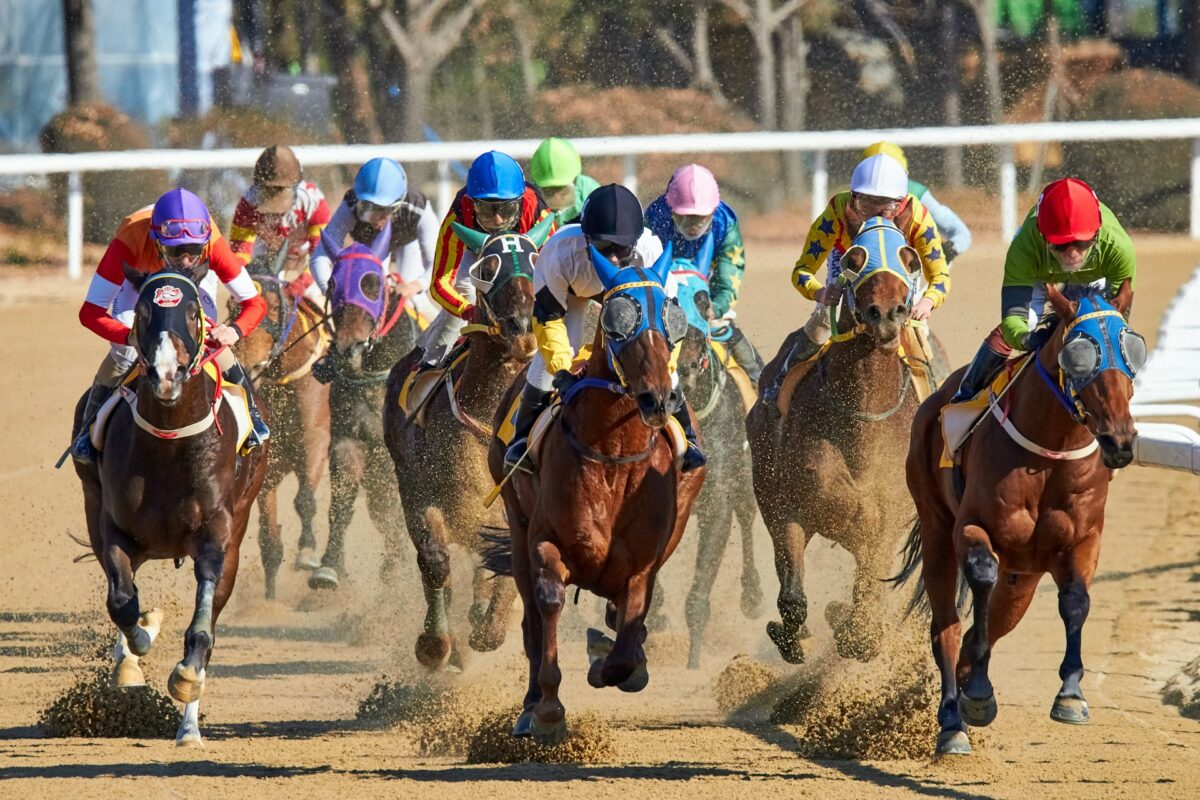Horse Racing 101: A Comprehensive Guide to Equestrian Rules

Horse racing is an exciting sport that has captivated audiences for centuries with its blend of speed, skill, and tradition. Dating back to ancient civilisations, this equestrian sport has evolved over millennia into the structured and thrilling sport known worldwide. While it was previously popular only to the upper classes of society, the internet has made this sport accessible to everyone, especially sports bettors!
Betting is a significant part of what keeps horse racing popular today. The anticipation and strategy in placing bets add an extra layer of excitement for spectators, transferring a day at the races into an experience that intertwines sport and chance. Whether a curious newcomer or a seasoned enthusiast, knowing horse racing rules is key to experiencing the thrill to its fullest.
Basic Horse Racing Rules for Beginners
When it comes to horse race betting, people often focus solely on horse racing betting rules. However, having a grasp of the basic rules and regulations of the game is also crucial. Below is a beginner’s guide to key horse racing regulations.
● Types of Races
Newcomers need to familiarise themselves with the two primary types of horse racing.
Firstly, Flat racing occurs on a level track without any obstacles. Horses race over a specified distance, and the focus is entirely on speed and stamina. This type of racing is the most common and includes prestigious events like the Kentucky Derby and the Prix de l’Arc de Triomphe.
Secondly, Jump racing or steeplechasing involves horses navigating obstacles such as fences and ditches. This form of racing tests both the horse’s agility and the jockey’s skill in guiding their mount over various barriers. Jump races can be quite thrilling, adding an extra layer of excitement to the competition.
● Starting the Race
Races typically begin from starting stalls or gates. Horses are loaded into individual stalls, which are opened simultaneously when the race begins. This process is crucial to ensure a fair start for all competitors.
However, if a horse breaks from the gate early or before the gates open, it results in a false start. When this happens, the race may be halted, and a restart is ordered.
● Winning Criteria
To win the race, a horse needs to cross the finish line first. However, there are additional considerations.
In cases where horses finish simultaneously, a photo finish is used to determine the winner. This involves taking a high-speed photograph of the finish line to identify which horse crossed first. However, horses can also be disqualified due to various reasons, such as interference with other horses or failing to adhere to race rules.
● Jockey Responsibilities
Jockeys have an important role in horse racing and must adhere to specific guidelines.
For one, Jockeys are responsible for riding safely and ensuring their horse does not endanger others on the track. They must also follow the prescribed course of the race. For instance, jump racing involves successfully navigating all obstacles.
Furthermore, any actions deemed unsafe or unfair can lead to disqualification for both jockey and their horses.
Importance of Race Regulations Knowledge for Bettors
In sports betting, understanding the game’s regulations is essential for bettors. This is not different for horse betting, as these regulations ensure fair play while protecting the integrity of the sport. Here is why being knowledgeable about horse racing rules is vital for bettors.
● Ensuring Fair Competition
Horse racing regulations are designed to maintain a level playing field. Rules govern how races are started, the conduct of jockeys, and the treatment of the horses.
Bettors who understand racing regulations can better assess the legitimacy of a race and make informed decisions when they bet on horses. This knowledge helps them identify potential irregularities that could affect race outcomes, thereby enhancing their betting strategy.
● Promoting Responsible Gambling
Many reputable bookmakers implement responsible gambling programs designed to protect their customers from potential gambling-related harm. These programs often include features such as deposit limits, self-exclusion options, and tools that allow bettors to monitor their betting behaviour.
Additionally, the best horse betting sites provide information on how to gamble safely and encourage bettors to set personal limits while maximising returns.
● Enhancing Betting Decisions
Understanding how to interpret odds efficiently allows bettors to identify value bets–situations where the odds offered by bookmakers do not accurately reflect a horse’s true chances of winning. In these cases, smart bettors review historical data on horses, including their previous races, finishing positions, and how they fared under similar conditions.
Moreover, with the right knowledge, bettors can make appropriate strategies based on the situation presented. After all, each strategy requires careful consideration of the horses’ form, odds, and race conditions.
Make Smart Bets with Junebet66
An informed bettor is always better than a clueless one. In the tough world of horse betting, where speed meets luck, it helps to know all the factors to consider. However, the strategy does not end there; knowing all the tricks in the book is one thing, but having a trusted online sportsbook is another.
Junebet66 is one of Singapore’s reputable bookmakers, providing legitimate betting odds so gamblers can enjoy secured payouts. Register here and make smart bets on the fastest horses.
References:
https://www.rulesofsport.com/sports/horse-racing.html
https://www.berlinnovember.co.za/rules.html
https://www.artofmanliness.com/living/games-tricks/how-to-bet-on-horses/
https://www.foxsports.com/stories/other/how-to-bet-on-horse-racing-the-beginners-guide

